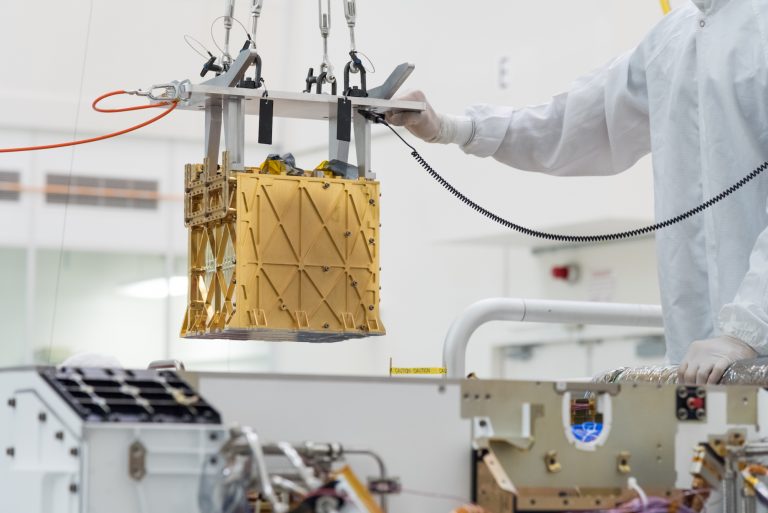The rolling mill established by Chinese researchers produces the catalyst from Martian rocks, which is suitable for producing oxygen from water. It works on an automatic artificial intelligence system without human assistance.
There are several significant obstacles to a human invasion of Mars, including the long journey, the effects of radiation on astronauts, and the difficulty of creating sufficiently safe habitats, all of which represent challenges that space agencies must solve. If it is possible to safely arrive and settle on the planet, there may be the additional problem of providing supplies during long-duration missions, which must be produced for crew members from local resources using the ISRU (in-situ resource utilization) method.
Among the basic raw materials, the generation of oxygen on Mars is of particular interest, as it will be needed not only by humans, but also as fuel for the spacecraft during the return journey. The easier, more reliable and larger the amount of oxygen astronauts can produce, the greater the chance that future missions will be successful. One promising method is using MOXIE (Mars Oxygen In Situ Resource Utilization Experiment), which is being tested directly on the planet using the Mars rover Perseverance, which works by converting atmospheric carbon dioxide into oxygen. The equipment used by NASA uses electricity to break down carbon dioxide into oxygen and carbon monoxide, which makes up 96% of the atmosphere on Mars, and according to tests, it works very well in the Martian environment. Moreover, it can be built on a larger scale, so There is no hindrance in large quantities with the help of oxygen production.
A more sophisticated but also usable method has been presented by researchers from the University of Science and Technology of China, and published in the journal Nature Synthesis. In their studies: Their solution automatically creates a catalyst that can be used to produce oxygen by splitting water. The automated laboratory uses a robotic arm to extract the materials needed for the catalyst from Martian minerals after dissolving, preparing and analyzing the acidic components. During the test, researchers used Martian meteorites to evaluate whether the robot could make a catalyst from rocks found on the planet. The machine was successful, and one of the great advantages of its operation is that it can carry out the entire process without human intervention, with the help of artificial intelligence.
nature a description According to the machine, it is possible to produce 60 grams of oxygen per hour from every square meter of Martian regolith containing water, and it may also be suitable for preparing compounds to initiate other types of reactions in the future. The machine was also tested at a temperature of -37 degrees Celsius, to mimic the Martian environment, and the oxygen production proved effective. According to the researchers, the biggest advantage of the “robot chemist” is that it is equipped with artificial intelligence, and it solves tasks completely independently and does not need remote control, so it will be able to work on Mars far from the astronauts, if conditions exist. require it.
If the first settlers of Mars were recruited, would they advance?
22%
Yes immediately! It would be great, I want to be part of history!
17%
I’ll wait until the first 10,000 people survive for one year and then join the second round!
23%
Not yet, but in our lifetime this will be a realistic question, and maybe after 30 years I will go…
37%
of course no! I will extinguish the light on Earth, and I will never leave this planet!
(Image: Qing Zhou et al./Nature Synthesis, AI-Chemist Group/University of Science and Technology of China)
More oxygen is being produced on Mars than ever before
The Mars rover Perseverance, which arrived at the planet in early 2021, is full of exciting devices, but one of the most interesting of all is a device called MOXIE, which can produce oxygen from Mars’ rare atmosphere.













































